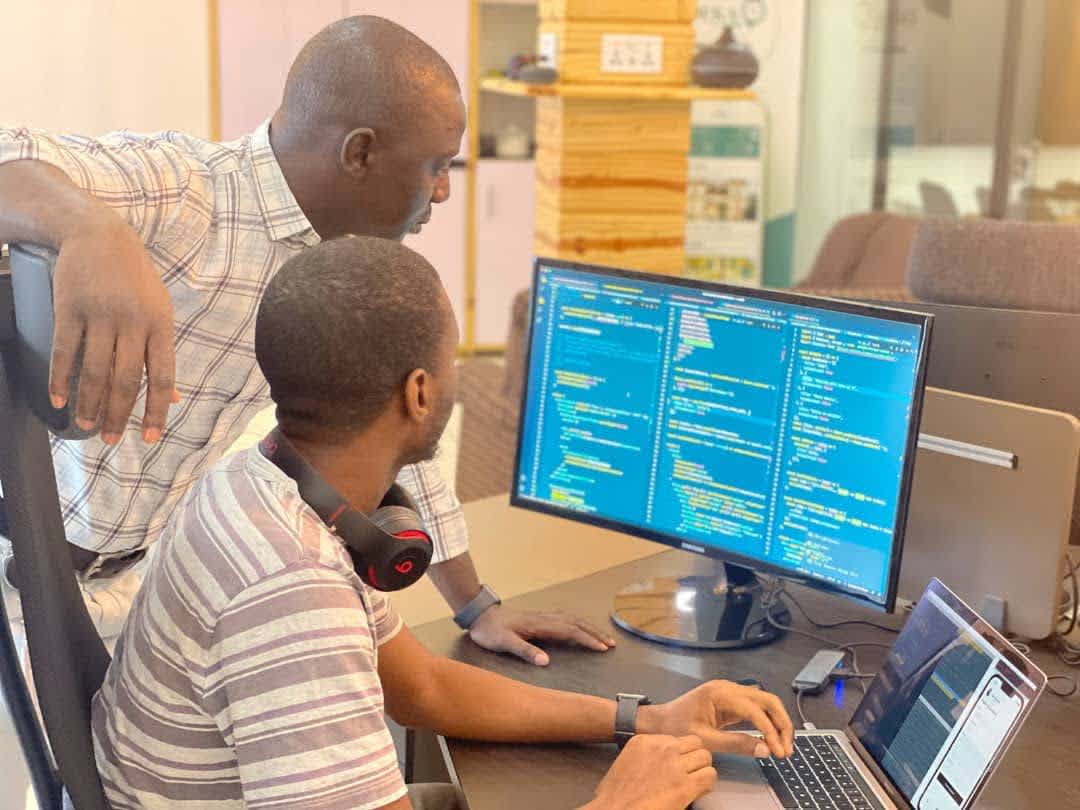
Hassan Y. Jallow
4min read
Tech Space in The Gambia: A Retropective

• Transcribed by Waka •
We reached out to a few friends to leave questions for our blog. In a short video interview with Hassan, he answered me these questions related to his views on the tech industry in The Gambia, his vision and his belief for a way forward. He shares what was done differently, the challenges and overcoming them from start-up to present.
What does it take to set up a successful software engineering company in a ‘low market’ country like The Gambia?
If people in The Gambia can spend considerable amounts of money on other things that matter to them, certainly they can spend money on developing software for their businesses in ‘low market’ conditions. So firstly, convince people on why they should opt-in. Show value, because people do not necessarily understand why they should use software in the first place. Our case with the Gambia Chamber of Commerce & Industry (GCCI) is a great example.
The chamber used actual typewriters to generate Certificates of Origin for the longest time. If it is not broken, why fix it right? Wrong. We prototyped a software for them and they loved it. “Oh, this is actually better than we had thought,” they said. Build a prospect for your clients that gives them an epiphany. Automate business processes that makes clients practically recognize the impact of software.
Secondly, you may not always have the time or team to prototype something for every prospective client (keep that in reserve for the golden goose), but a great team will set up any company for success. One person is simply unable to do everything perfectly. Find people who complement areas in which you do not thrive. Merge skills across the board to create a synergy that produces nothing but excellence. I think it is also a question of passion for knowledge, thirdly. For the most part, getting started takes a computer, internet and coffee, then learn on your own.
What are some challenges of setting up a company without work experience?
Well, first we had to convince companies to spend money on products. Also, perhaps more importantly, how do you constantly find top talent to hire. I have focused on potential rather than capability. Hire potentials and help them grow. Pave a way and give your team autonomy and freedom to figure stuff out on their own. That is the same path I went through, and the same philosophy we still maintain within the company.
Additionally, we challenge ourselves to maintain standards. We do not benchmark horizontally (nationwide), but internationally. We are constantly on the edge to find out what is new out there and what workflows might better suit the team. Sometimes, inexperience is a blessing on its own. Experience is great, but jumping from my 2nd year of university and morphing a tech start-up culture helped us to start with a fresh slate, uninfluenced by biases that others pick up from previous jobs and work experiences. We also observed cultures of thriving tech companies we adore around the world and copied them.
Lastly, challenges are made easier through colleagues. Hire people who are smarter than you so they can proffer better ways of going about problems. Hire people that exhibit brilliance (or the potential thereof), and remain hungry for knowledge. Most of the team here joined Assutech as their first jobs. We always encourage the team to learn fast and learn on the fly. As well, get mentors that are seasoned and experienced, and merge their expertise with what you know to make better decisions.
‘Halat bi’, what did you do differently?
Our strive for excellence and nothing less. Aristotle said “We are what we repeatedly do. Excellence, then, is not an act, but a habit.” The culture for excellence and for detail, and eagerness for success. This propels everything we do and has created us a reputation as a company that delivers great software at any cost.
Moreover, learning from everybody. Teamwork. Humility. Collaboration. Most importantly, have fun. We do go swimming and play football regularly, as a team. One last important factor, people need to be in a good psychological state. We are human, and work with our brain. To watch out for each other then becomes imperative; to pay attention to the next person, and our emotional, physiological and mental stability.
What is the vision for Assutech, and for Tech in The Gambia?
Our mission is “to bring meaningful technological innovations to the masses to improve the quality of life” across the African continent. I say this as a mantra every single day. One of the fastest and most efficient ways to achieve this mission is through enabling tech. Assuming we are competing with Asia in tech, we lose on almost all relevant grounds. Hardware? They have got that in spades. What may cost them one Dalasi to make may cost us 10 Dalasis, or more, assuming we can make it locally at all. Materials, supply chains & logistics? They are leaps and bounds ahead of The Gambia. Reasonable and available power supply, humungous human capital and cheap labour? Same. Additionally, R&D for solutions, experience, influence and access to global markets, to say the least. The one plane we may compete on is software development.
The raw materials we would need for this prospect is internet, a laptop and brains. Geographically, The Gambia is on similar time zones with European countries, and more ideally located to the US. There is a humongous capacity to serve clients around the world. We have a vision to transform Gambia into a hub. A tech hub, and to engage top talents and clients around the world. Brain power is not our bottleneck at this time. Of course there are challenges, but internet is getting ever so slightly better and accessible, and so are other impediments slowing this mission. In addition, a degree may take 4 years to complete, but you could launch a maintainable and scalable software solution after about a year of structured, streamlined learning.
What drives you, and what’s your motivation?
We hope our vision to create top tech talent in The Gambia will be seen through. Our hope is to make other people’s lives better. Personally, there is nothing more desirable than that. I have a deep sense of gratification being able to do so. I feel what we need to do as a small country is to export our human capital and talent internationally. This, I believe, is the fastest and most efficient way forward.
Taking a close look at Gambia, we realize there are actually a lot of potential and opportunities opening up, which rather unfortunately slip through our fingers. We wish to take advantage of these opportunities and help transform the lives of our people. Should we get this right, we all will inspire a whole new generation of patriotic youth, full of grit and direction, InshaaAllah. Education and seeking knowledge pays off and indeed transforms lives. We need that.
More from Assutech


